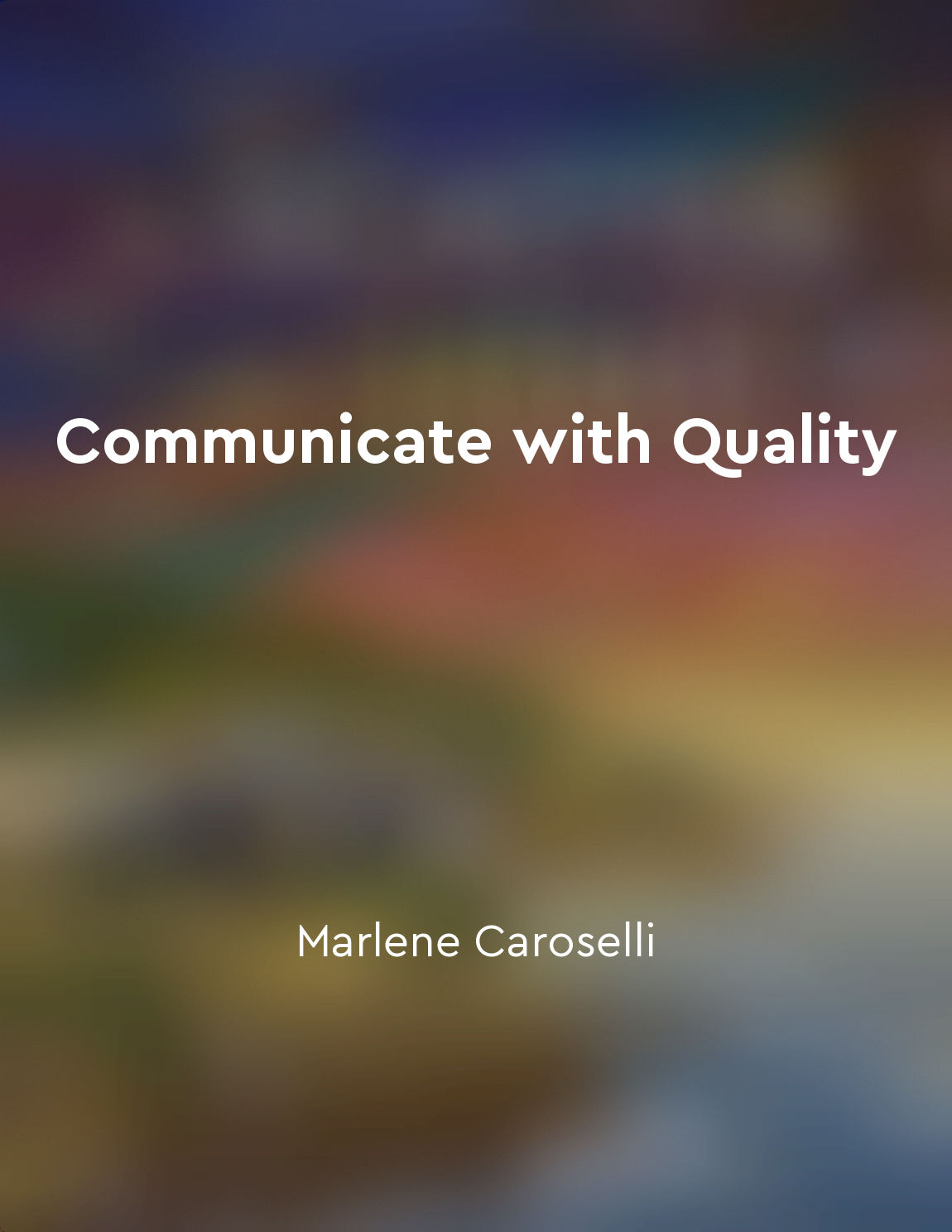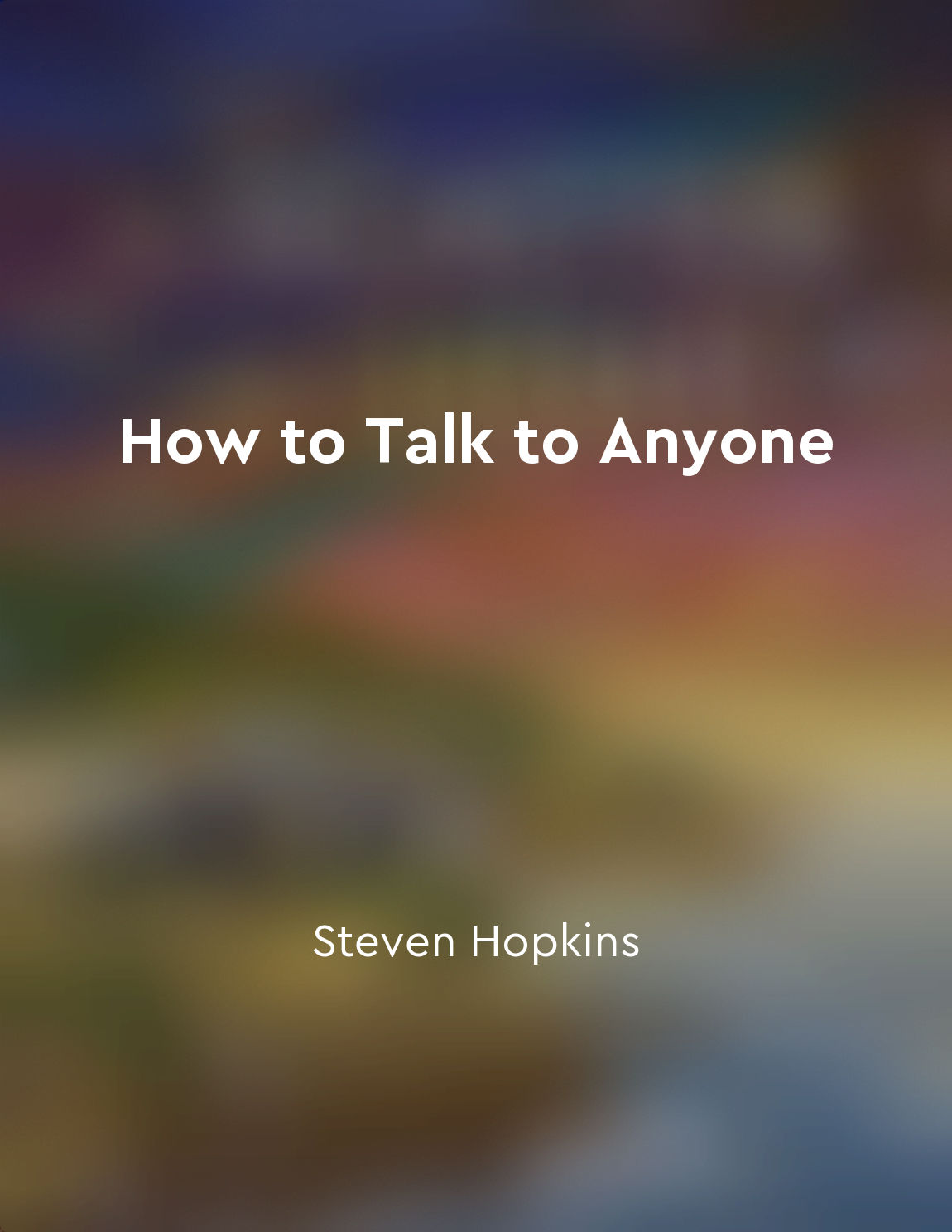Audio available in app
Be a good listener from "summary" of How to Be a People Magnet by Leil Lowndes
Being a good listener is a crucial skill in the art of connecting with people. It is about more than just hearing the words that are being said—it is about truly understanding the speaker's thoughts and feelings. When you are a good listener, you make the other person feel valued and respected. You show genuine interest in what they have to say, and this can go a long way in building strong, meaningful relationships. To be a good listener, you must be fully present in the conversation. This means putting away distractions like your phone or other devices and giving the speaker your undivided attention. You should maintain eye contact and nod or provide other nonverbal cues to show that you are engaged and actively listening. By doing this, you create a safe space for the speaker to open up and share their thoughts and feelings with you. It is also important to ask clarifying questions and provide feedback to demonstrate that you are truly understanding what the speaker is saying. This shows that you care about their perspective and are willing to put in the effort to understand their point of view. By actively listening and engaging in the conversation, you can deepen your connection with the speaker and strengthen your relationship with them. Being a good listener is not just about being quiet and letting the other person talk. It is about actively participating in the conversation and showing that you are invested in what they have to say. By practicing good listening skills, you can make others feel heard and understood, which can help you build trust and rapport with them. So, next time you are in a conversation, remember to be a good listener and watch how it can positively impact your relationships.Similar Posts
Use analogies to help your audience better grasp complex ideas
Analogies are powerful tools that can help your audience better understand complex ideas. By comparing something unfamiliar to ...

Nonverbal cues are just as important as spoken words
Nonverbal cues play a crucial role in communication. They are often overlooked or underestimated, but they can convey just as m...
Body language complements verbal communication
One key aspect of effective communication is the recognition that our body language often conveys just as much, if not more, in...

Trust can be built or broken through conversations
Trust is a fragile entity that can be easily built or broken through the power of conversations. When we engage in dialogue wit...
Identity shapes our perspectives and interactions
Our identities, shaped by our personal experiences and backgrounds, play a significant role in how we perceive the world around...

Be respectful of cultural differences
In this guide, readers are reminded to show consideration and understanding towards different cultures. The importance of respe...
Use transitions to guide the audience
Transitions play a crucial role in guiding the audience through a speech. They serve as signposts that indicate the direction i...
Celebrate the joy of learning
Learning is a journey, a process of growth and discovery that should be embraced and celebrated. It is not just about acquiring...

Nonjudgmental attitudes foster open communication
The fundamental principle of effective communication lies in the ability to listen without judgment. By refraining from passing...

Assertive communication empowers individuals to express their thoughts clearly
Assertive communication is a powerful tool that allows individuals to convey their thoughts and feelings in a direct and clear ...
